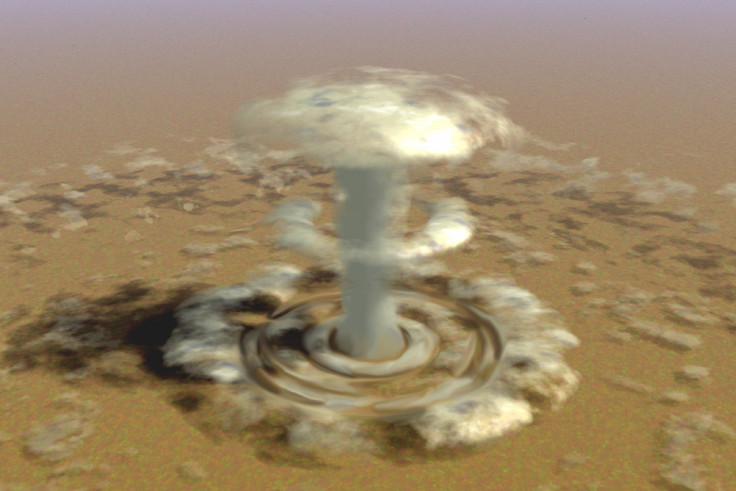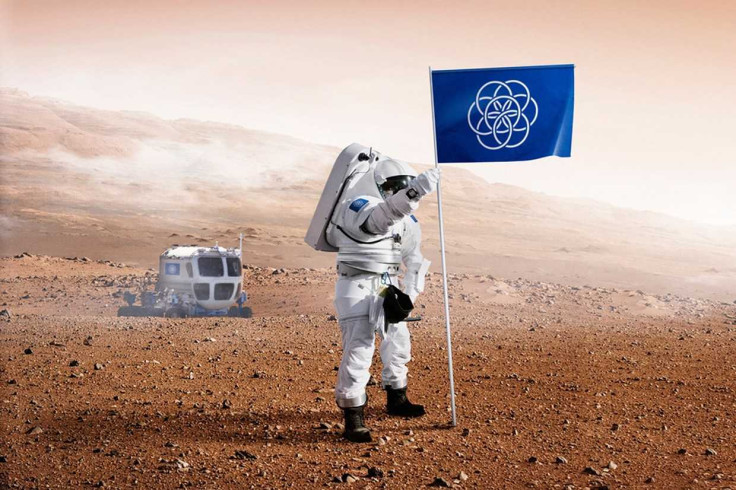Elon Musk wants to nuke Mars, but scientists say it's not as crazy as it sounds

SpaceX and Tesla Motors CEO Elon Musk has made one of his outrageous statements in the media again, this time suggesting that the best way to warm Mars up for human colonisation would be to launch nuclear weapons at the planet.
His comments were made during an interview on US talkshow The Late Show with Stephen Colbert on 9 September, when Colbert asked him to explain why anyone would possibly want to live on Mars.
"[Mars] is a fixer-upper of a planet, so first you're going to have to live in transparent domes, but eventually you can transform Mars into an Earth-like planet," Musk told Colbert. "You'd warm it up. There's the fast way and the slow way. The fast way to drop thermonuclear weapons over the poles."
Musk did mention that the slow way to warm up the planet would be to use greenhouse gases like carbon dioxide, but since there is already so much carbon dioxide on the planet that it is poisonous, this would mean that the planet would only be suitable for plants, but not for animals.
But will nuking Mars work?
"Exploding bombs on Mars would be perfectly possible, but I don't know what effect it will have. I don't know a lot of about nuclear weapons, but they do have side effects like radiation," Dr Malcolm Macdonald, director of the Scottish Centre of Excellence in Satellite Applications at Strathclyde University and deputy chair of the UK Space Agency's Space Programme Review Panel told IBTimes UK.
"That said, humans have certainly changed climate by interfering with it. But, nuclear weapons? I'm not sure I understand the mechanism of how it could warm the planet. There are ideas about how the polar regions are quite sensitive, so if you make changes to these regions, the changes are amplified, like a sweet spot in a control system.
"But this is just theory. There is ice at the poles in Mars, but the atmosphere is very thin, so you need to thicken the atmosphere before humans could live on the planet."
Elon Musk's ideas are often quite sane
And although this concept sounds very odd, Macdonald stresses that we should not be too hasty to dismiss Musk as he has probably thought his idea through, and it might make sense if he took the time to explain it.
"I have sanity-checked things Elon Musk has said in the past and they do tend to be possible in theory. In many ways, that is how he has made money with Space X and Tesla – he's taken things that are theoretically possible but have never been tried in business, and he's been questioned by conventional players in those sectors who didn't believe it would work, but he's been able to change it so it does work for him," said Macdonald.
"I've never heard of this idea before, but I wouldn't put him down as a villain as Colbert did. Most of the things Elon Musk comes out with are technically sound and have a clear understanding of physics, so he tends not to be that far off the mark on what is possible theoretically, though the technical solution might not be possible."
Musk has a point, but it will take 10 centuries

"He has a point. If we wanted to terraform Mars quickly, the way to do it would be to
evaporate those ice packs, but I don't think we can turn enough ice into gas using nuclear weapons. It would take 10 centuries," Dr Matthew Genge, a planetary scientist at Imperial College told IBTimes UK.
"The biggest nuclear weapon ever made is the Tsar Bomba which had a yield of 25 megatons of TNT, and that would still not be enough. You'd need a lot of nuclear weapons. They cause radiation and it's not just the immediate effects of that radiation. It's embedded into the target materials, which generate lots of nasty isotopes which are really quite harmful to human beings."
Nuking Mars could prevent discoveries of life
But it's not just the potential hazards nuclear weapons pose to humans that is at risk, but also potentially the biggest discovery of all time.
"The best reason though for not doing it is that Nasa and Esa spend tens of millions
ensuring that spacecraft that go to Mars are extremely clean, because we don't want
to contaminate Mars. We still don't know if there is life on Mars. We think there
might have been, and there's a slim possibility there might still be life on Mars," stressed Genge.
"Even if it's single cell bacteria, we still wouldn't want to do it. The significance would be enormous. If we find life on other planets in our solar system, it would indicate that life is common in the universe, which would be the biggest discovery ever."
When asked by the LATimes, Nasa said: "We are also committed to promoting exploration of the solar system in a way that protects explored environments as they exist in their natural state."
© Copyright IBTimes 2025. All rights reserved.






















